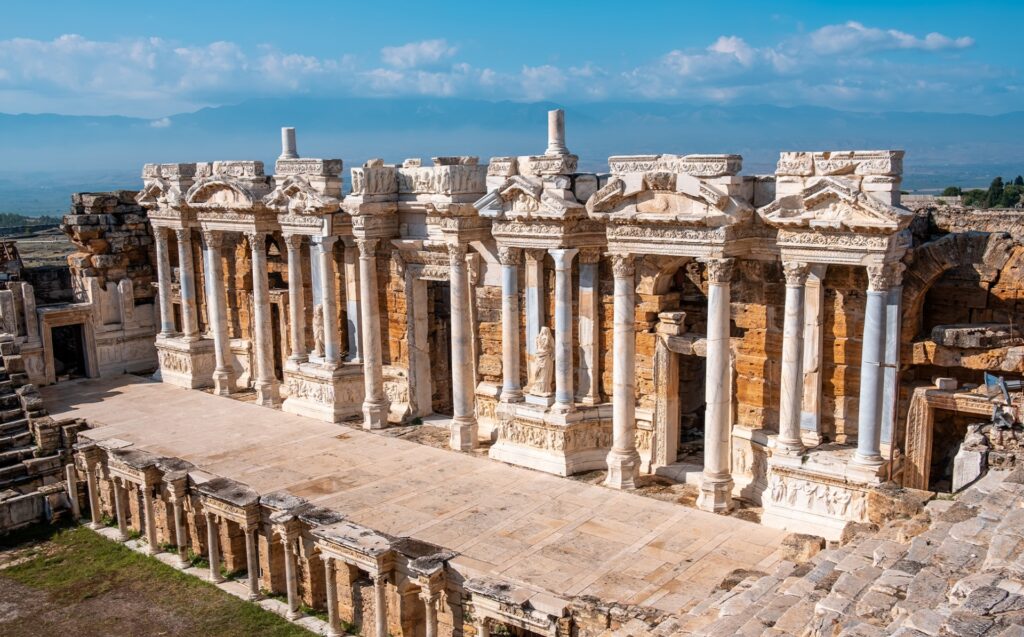Introduction
Hierapolis, an ancient city in modern-day Turkey, is one of the most impressive archaeological sites in the world. Located on the banks of the River Lycus, the city was founded in the 2nd century BC and was an important trading centre of the Roman Empire. Hierapolis is also known for its vast necropolis, hot springs, and the impressive Temple of Apollo. In this article, we explore the history, attractions, and significance of this ancient city.
History of Hierapolis
Hierapolis was founded by the Eumenes II of Pergamum in 190 BC on top of an existing settlement. The city was named Hierapolis, meaning ‘sacred city’, and was built in honour of the goddess Cybele. The city flourished in the Roman Empire, and the emperor Hadrian built a temple in honour of Apollo in the 2nd century AD. The city was also a major centre of early Christianity, and the Apostle Philip was martyred here in 80 AD.
Attractions in Hierapolis
The city of Hierapolis is a treasure trove of archaeological remains and historical attractions. The most impressive sights include the Temple of Apollo, the Necropolis, the hot springs, and the theatre.
The Temple of Apollo
The Temple of Apollo is the most important attraction in Hierapolis. Built in the 2nd century AD, the temple was dedicated to the god Apollo and was an important site for pilgrims. The temple complex consists of a large open courtyard, a portico, and a main temple building.
The Necropolis
The Necropolis is an ancient cemetery in Hierapolis. It is home to many tombs, some of which date back to the 5th century BC. The tombs are decorated with intricate carvings and inscriptions, making them an interesting sight for visitors.
The Hot Springs
Hierapolis is known for its thermal springs and natural hot pools. The hot springs are believed to have healing properties and are a popular tourist destination. The springs are surrounded by travertine terraces, making them a beautiful sight.
The Theatre
The ancient theatre of Hierapolis is another popular tourist attraction. Built in the 2nd century AD, the theatre has a capacity of 15,000 and is still used today for theatrical performances.
Significance of Hierapolis
Hierapolis is an important archaeological site and a UNESCO World Heritage Site. It is one of the few ancient cities in the world that has been preserved in its original form, making it an invaluable source of information about the history and culture of the Roman Empire. The ruins of Hierapolis also provide an insight into early Christianity and the spread of the religion in Asia Minor.
Conclusion
Hierapolis is an ancient city in modern-day Turkey that is full of ancient ruins and archaeological remains. Its impressive attractions, such as the Temple of Apollo, the Necropolis, the hot springs, and the theatre, make it a popular tourist destination. The city is also an important archaeological site and a UNESCO World Heritage Site, making it an invaluable source of information about the Roman Empire.

